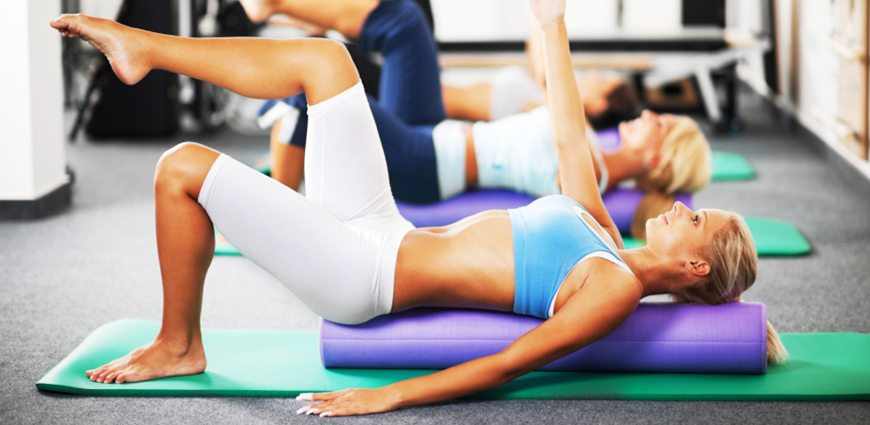What do lecture halls, computer desks, cafeterias, and libraries have in common? That’s where college students spend so much of their time in sedentary pursuits.
Although hours of studying burn mental energy, both your body and mind need physical exercise to function at their peak. But with high school gym class a thing of the past and no parents around to remind you to get moving, how do you stay fit in college?
What Does My Body Need?
The importance of exercise is nothing new. Thomas Jefferson once wrote that to be successful in academic studies, a person should “give about two of them [that’s hours, people!], every day, to exercise; for health must not be sacrificed to learning. A strong body makes the mind strong.”
It turns out Jefferson was on to something. A multi-year study by researchers at Tufts University found that students who said they exercised at least 3 days a week were more likely to report a better state of physical health and greater happiness than those who didn’t exercise. This (and other evidence) suggests that the real benefits of exercise may not come right after a workout but from a longer commitment to regular activity.
Most experts today do not demand 2 hours of daily exercise. The U.S. Department of Health and Human Services recommends that people get at least 60 minutes of moderate to vigorous physical activity most days of the week.
Brisk walking, jogging, and swimming are easy ways to boost your heart rate and promote cardiovascular health. Exercise can also help lower blood pressure and counter stress. For women, exercise that makes the body and bones bear weight — like walking or running — may reduce the risk of osteoporosis later in life.
You’ll likely discover a subtler benefit of exercise as well: greater self-confidence. This may make it easier for you to participate in class and help you perform well in academic and social situations.
How Can I Get Moving?
Colleges offer lots of exercise options. Why not take advantage of the facilities and try something new? You may even be able to take physical education classes for credit — check with your advisor. Here are some suggestions to get you going:
Work out at the gym. The gym can be a great place to work off stress from the pressures of school. And if time on the stationary bike or treadmill makes you feel like a hamster, you’ll probably find lots of other options at your college gym, such a pool or yoga classes. Exercise should be fun, because the more you enjoy it the more likely you are to do it regularly. So find activities you like and make them a part of your routine.
Hit the road. All you really need for a workout are comfortable athletic shoes. Then head to the track or check out local trails for jogging — or biking and in-line skating. If your school has jogging or fitness trails around campus, you can probably pick up a map in the student activities office or the gym. (Avoid running alone in isolated areas or at night, even in places that feel safe, so take a friend on your road trip.)
Head to the court — or the green. Most schools have tennis, racquetball, or squash facilities, and some colleges have golf courses. Many offer classes and lessons. And one of the great things about college is that if your friends don’t share your interests, you can usually meet other players easily.
Join the club. Even if you’re not at the level of NCAA competition, there are opportunities to play team sports. Check out intramural and club sports like soccer, basketball, lacrosse, ultimate Frisbee, and tons of others.
Take a hike. Many schools have an outdoor recreation club that loans or rents equipment — everything from tents and backpacks to kayaks and snowshoes — to students for solo or group outings. They may also offer organized trips and lessons. If you’re experienced in the outdoors, consider volunteering to lead groups of other students on hikes or other outdoor trips.
Everyday Ways to Get Active
Getting the exercise you need is easier than you might think. There are plenty of ways to add a little extra activity to your everyday routine. For instance:
- Bike or walk to class, the library, or the store.
- Park farther away than you normally would and walk.
- Choose the dining hall on the far side of campus.
- Try stretching, marching in place, or walking around during study breaks.
- Take the stairs.
Don’t become overwhelmed by feeling that you have to commit a lot of time to fitness. If you can’t find the time for longer workouts on a regular basis, try two or three shorter exercise sessions every day. Splitting your workouts into 15- or 10-minute increments throughout the day appears to work just as well as doing a full 30 minutes at once. Maybe you can work in a quick session before you shower in the morning and another after your classes in the afternoon.
How Much Is Too Much?
It is possible to get too much exercise. Overexercise can strain your joints and weaken your muscles, increasing your risk of injury.
Always pay attention to signals from your body when you work out — it will let you know when you’re pushing yourself too hard or straining too much. In addition, without enough time to recuperate between workouts, you body can wear down. Most fitness experts and trainers recommend a day off after a hard workout to give muscles time to rest and repair themselves; this is the way that muscles become stronger.
Research suggests that too much exercise can affect a person in other ways as well. Scientists at the University of Wisconsin found evidence that exercise can be as addictive as drugs or alcohol. Excessive exercise is also a component of certain eating disorders.
If you suspect your fitness is getting out of hand, ask yourself the following questions:
- Is working out (or thinking about working out) getting in the way of other things, such as your friendships or relationship?
- Do you regularly skip classes, time with friends, or other activities to exercise?
- Is working out affecting your studying and grades?
- Do you feel overwhelmed by guilt when you take a day off from your exercise routine?
- Are you counting calories and adding exercise time to make up for food you eat?
If the answer to any of these questions is yes, you might be heading into unhealthy territory. Talk with a nutrition counselor, student health professional, or doctor about it. It’s important to get the support and information you need to make healthy choices for your body and mind.
To boost the benefits of proper exercise, students should focus on getting balanced nutrition, enough water to stay hydrated, and adequate sleep. Together, these can help you feel your best both physically and mentally.






